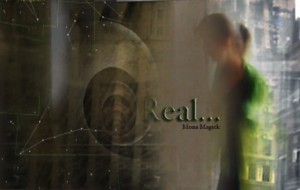 The term out-of-body experience was introduced in 1943 by G.N.M Tyrrell in his book Apparitions, and adopted by, for example, Celia Green and Robert Monroe as a bias-free alternative to belief-centric labels such as “astral projection”, “soul travel”, or “spirit walking”.
The term out-of-body experience was introduced in 1943 by G.N.M Tyrrell in his book Apparitions, and adopted by, for example, Celia Green and Robert Monroe as a bias-free alternative to belief-centric labels such as “astral projection”, “soul travel”, or “spirit walking”.
Exactly 116 years ago, in 1895, H. G. Wells classic story The Time Machine was first published in book form. The reason I relate to theses points and time is that it strikes me as odd that I cannot find anything any studies on the conjoining topics which appear to be quite similar. But here we go…
For some, out-of-body experiences or OBEs occurs spontaneously, while for others it is linked to dangerous circumstances, a near-death experience, a dream-like state or use of chemical substances. For the more experienced OBE can be induced at will. This article isn’t about what OBE is because I’m sure there’s plenty of online references. What I will speak about how closely it relates to a time and place of travel taking place in both mind and space.
OBEs occur when people lose input from their sense organs, as happens at the onset of sleep, while retaining consciousness. This combination of events is especially likely when a person passes directly from waking into REM sleep. In both states the mind is alert and active, but in waking it is processing sensory input from the outside world, while in dreaming it is creating a mental model independent of sensory input. This model includes a body. When dreaming, we generally experience ourselves in a body much like the “real” one, because that is what we are used to. However, our internal senses in the physical body, which when we are awake inform us about our position in space and the movement of our limbs. This information is cut off in REM sleep. Therefore, we can dream of doing all kinds of things with our dream bodies — flying, dancing, running from monsters, being dismembered — all while our physical bodies lie safely in bed.
I cannot convince anyone what is real beyond what their own perception would allow them to believe and accept
Lucid dreamers on the other hand often comment to themselves in dreams, “I know this is a dream, but it all seems so incredibly real!” All this goes to show that the feeling that an event is real does not mean that it is happening in the physical world that we all share when we are awake. This is not to deny that that inner experiences are real, in that they have deeply profound effects on our lives. However, as lucid dreaming so amply demonstrates, we can learn to distinguish between our personal dreams and events in the consensus dream we call physical reality.
So how does this cross over into the scientific field of Quantum Physics and living proof of what can be done?



